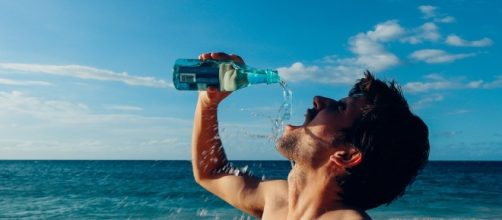More than 26 million Americans currently have chronic kidney disease, and millions more are at risk of developing it, yet most people don’t realize it. That’s because kidney disease takes time to develop – years even before any symptoms manifest.
Kidney disease often has no symptoms, and it can go undetected until it is very advanced. But a simple urine test can tell if you have kidney disease. To prevent it, healthy eating plays an important role. Often, obese and overweight populations are at greater risk of getting obesity-related chronic diseases such as hypertension, Type 2 Diabetes mellitus, and hyperlipidemia.
Therefore, starting a healthy eating habit is the first step towards protecting your kidneys.
Junk food is a no-no
It's no surprise that Junk Food is low in healthy nutrients and high in ingredients like sugar and salt. But animal research in 2016 suggests that a diet high in junk food might harm the kidneys in a similar way to diabetes.
"Type 1 and Type 2 diabetes both induce changes in glucose transport in the kidney, but junk food or a diet high in fat causes changes that are very similar to those found in Type 2 diabetes," said Havovi Chichger, lead author of the study.
Among those you should avoid or limit your consumption to are potato chips, crackers, cheese spreads, instant potato mix, and deli meats as are all examples of processed foods that are high in phosphorus additives and sodium - both of which can have a damaging effect on the kidneys.
Sleeping is essential
Most adults moan about how they lack sleep, due to overlapping schedules and the hectic nature of today’s lifestyle. While feeling lethargic half the time is one effect, Science Daily reports that chronic sleep disruption can cause kidney disease.
According to Dr. Michael Sole, Cardiologist and founding director of the Peter Munk Cardiac Center and Professor of Medicine and Physiology at the University of Toronto, kidney tissue gets renewed during the night, so sleep interruptions can cause direct damage to this organ.
Stay hydrated
Drinking lots of water helps your kidneys clear sodium and toxins from the body. Drinking plenty of water is also one of the best ways to avoid painful kidney stones. Those with kidney problems or kidney failure may need to restrict their fluid intake, but for most people, drinking 1.5 to 2 liters (3 to 4 pints) of water per day is a healthy target.
It's important to take note of the possible complications of kidney disease, including anemia, metabolic acidosis, bone disease, cardiovascular disease, fluid overload, high potassium and phosphorus and others. Each of these can be detected with the right tests, plus there's a lot you can do to avoid the complications if you learn what to look for.


